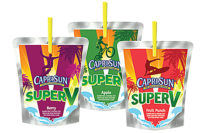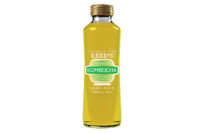For the fourth consecutive year, digestive health is the top trend in the health and nutrition segment, said Gregory Leyer, global business development director of consumer healthcare for Danisco, now a part of Wilmington, Del.-based DuPont, during the Pre & Probiotics 2012 Virtual Conference on Feb. 1.
Leyer also noted that about half of U.S. households are currently managing some type of digestive health issue. Ten to 20 percent of adults worldwide suffer from intestinal functional disorders such as irritable bowel syndrome (IBS), and nearly 40 percent of older adults have one or more digestive disorders, he said.
Ganeden Labs, Mayfield Heights, Ohio, cites that 86 percent of U.S. consumers are interested in food and beverages that improve their digestive health, 37 percent of which are interested but not actively buying.
This leaves a gap for food and beverage brands to fill. As a result, many suppliers are seeing continued interest in digestive health products.
“More and more customers are asking for a lot of digestive health ingredients and I think that’s because more and more consumers are looking for these healthier options in the marketplace, and healthy digestion is just one of the areas that’s a top priority for consumers,” says Rachel Wicklund, food scientist for Tate & Lyle, Sycamore, Ill.
Presenting probiotics
DuPont offers probiotics and dietary fiber as part of its Danisco portfolio. Probiotics are becoming one of the most important digestive health ingredients in functional drinks, while fiber remains the most recognized ingredient by consumers for digestive health, says Peggy Steele, global business director for food and beverage probiotics at DuPont. The company’s Litesse line of polydextrose fibers also are prebiotics, which means they have the ability to improve levels of positive microflora in the gastrointestinal (GI) tract and reduce negative bacteria, she says.
“Soluble fibers like polydextrose are quite easy to incorporate into any application,” Steele says. “They readily dissolve and depending on the grade of fiber you get, you can even add them into clear beverages and get a fiber boost in a beverage.”
DuPont’s fibers also do not affect the taste or texture of a beverage, she adds. Probiotics, on the other hand, can be a little more difficult to work with because the ingredients can be sensitive to heat, pH and manufacturing conditions such as whipping, she says. However, probiotics have been and continue to be successfully launched in the beverage category. In addition, probiotics have multiple health benefits, including improved transit and alleviating IBS symptoms, she adds.
A majority of probiotics appear in yogurt applications, but Steele sees that these ingredients are expanding to other categories, such as milk, juices and dry beverages, at double-digit growth rates.
“Dairy’s still going to be really strong, but you’ll see these other applications emerging with the important and differentiating benefits that probiotics can provide,” she says.
For instance, one of the first marketed probiotic products was the Yakult probiotic dairy beverage that launched in 1935 in Japan, according to Yakult USA Inc. Each 2.7-ounce bottle of Yakult contains approximately 8 billion of the company’s proprietary Lactobacillus casei Shirota strain in order to help balance the digestive system and maintain overall health, says Hideyuki Shibata, vice president of science and public relations for the Torrance, Calif.-based company.
“The good bacteria in Yakult can withstand stomach acid, so when you drink it, they can reach your intestines alive and active,” Shibata explains. “There, they help to increase the amounts of other beneficial bacteria living in the gut and suppress growth of harmful bacteria. By improving the balance of the intestinal microbiota, Yakult may help ease mild IBS symptoms such as diarrhea and constipation.”
Yakult was introduced to the southern California market in 2007 and will deliver at least 8 billion probiotics before the end of its 30-day shelf life, it says. The company has future plans to build a factory in Fountain Valley, Calif., that will enable it to increase production to 400,000 bottles each day and penetrate more regions in the United States, it says.
Outside of the dairy realm, Boulder, Colo.-based NextFoods introduced GoodBelly Probiotic Coconut Water last year. The beverage is infused with the company’s patented probiotic strain, Lp299v, which replenishes good bacteria and helps establish balance to the intestinal microflora, the company says. Each 8-ounce serving contains 20 billion live and active probiotic cultures at the time of manufacture.
This month, Morton Grove, Ill.-based Lifeway Foods unveiled a new flavored water with probiotics, Pro2O, at Natural Products Expo West in Anaheim, Calif. To preserve the cultures until consumption, Pro2O holds its probiotics separate from the water in a cap, which releases the ingredients when the consumer twists it off.
Sweet and sensitive
Applicable in nearly all beverage applications, Cargill Inc.’s Oliggo-Fiber inulin is a prebiotic fiber that supports the natural, healthful bacteria in the lower GI tract, says Pam Stauffer, global marketing programs manager for the Minneapolis-based company.
“Beverages are challenging because most fiber sources do not work well in beverages,” says Deborah Schulz, Oliggo-Fiber product line manager. “However, Oliggo-Fiber inulin is a great source of fiber for beverages because it is an ‘invisible’ fiber. Inulin is a highly soluble fiber which has a mild sweet taste, is clear in solution and has a thin viscosity when used at levels in a beverage as an excellent source of fiber.”
Oliggo-Fiber inulin is stable to heat processing, but sensitive to pH. It can be used in refrigerated low-pH beverages such as juices, but its use in shelf-stable low-pH beverages is limited because the fiber content degrades over time, Schulz says. Inulin is ideal in neutral-pH beverages such as weight-loss formulas and other supplements, she says. Additionally, Oliggo-Fiber inulin can aid in weight management and calcium absorption in adolescents and post-menopausal women, Stauffer says.
According to the 2011 U.S. Trend Study by HealthFocus International, St. Petersburg, Fla., consumer awareness of and interest in prebiotic ingredients is rising. Approximately 43 percent of consumers are aware of prebiotic fiber’s benefits and 80 percent are extremely interested in prebiotics, notes Lorraine Niba, business development manager of nutrition for Bridgewater, N.J.-based National Starch Food Innovation, a trademark of Westchester, Ill.-based Corn Products International Inc.
The company’s NutraFlora prebiotic soluble fiber, which is 30 percent as sweet as sucrose, is ideal for refrigerated fruit smoothies and dairy-based applications; it has been shown to support digestive health and improve calcium absorption, says Cristina Munteanu, scientist, technical service for Corn Products International. NutraFlora also is suitable for on-the-go powdered beverage mixes because it has a clean taste and is readily soluble, she adds.
“The use of fiber in beverages has traditionally been limited, primarily because of formulation challenges with traditional beverages,” Munteanu says. “However, as beverages like smoothies increasingly become a source of nutrition, beverage manufacturers are looking to add nutrients like fiber. In addition, soluble fibers that have clinically substantiated health benefits can be used in drinks targeted for health and wellness, like healthy shots.”
The company also offers Purimune high purity galactooligosaccharides (GOS) and Nutriose soluble fiber. Purimune GOS is a prebiotic ingredient that supports immune health and is suitable for shelf-stable, low-pH beverages. Nutriose also is suitable for low-pH applications when a fiber claim is desired, Munteanu says.
The joint venture between Archer Daniels Midland Co. (ADM), Decatur, Ill., and Matsutani America, Itasca, Ill., has developed three soluble fibers. Fibersol-LQ corn syrup is a soluble corn fiber that contains approximately
75 percent fiber on a dry solids basis, and has the ability to retain moisture, add sweetness and increase fiber content in foods and beverages, says Käti Ledbetter, product development scientist at ADM.
The joint venture’s Fibersol-2 digestion-resistant maltodextrin is a soluble fiber that differs from Fibersol-LQ because it contains 90 percent dietary fiber and has a low sugar and caloric value, Ledbetter says. It is well-suited for beverage applications because it is easy to handle, soluble in small amounts of water, clear and colorless in solution, and does not affect the overall taste, flavor and texture of the product, the company says. Plus, Fibersol-2 digestion-resistant maltodextrin can mask the metallic taste of calcium or iron, improve the mouthfeel and undesirable flavors of vitamins, improve the bitter taste of amino acids and isoflavones, and reduce fishy flavors of omega-3 fatty acids, she adds.
The companies also offer Fibersol-2 AG for applications where quick dispersibility and dissolution are vital for product success, and Sweet’n’Neat Hon-E-Shine, which combines 78 percent soluble dietary fiber from Fibersol-2 with natural sweetness from honey and purified steviol glycosides that can be used to reduce calories by as much as 70 percent when replacing sugar or other sweeteners, she says.
Stimulating fibers
Paramus, N.J.-based FrieslandCampina Domo, a division of the Ingredients Business Group of Royal FrieslandCampina BV, offers a dairy-derived prebiotic called Vivinal GOS. The ingredient stimulates the growth of probiotic bacteria in the large intestine, according to the company. Vivinal GOS also is stable in acid and heat, it adds.
Tate & Lyle offers Promitor soluble corn fiber and Stalite polydextrose prebiotics, both of which can increase the fiber content of beverages without adding any flavor or color, Wicklund says. Both ingredients are stable in acid and temperature, she adds.
“Much of the advancement in fiber ingredients in the last year has been around growing the scientific support for digestive health and the other health benefits that you get from consuming fiber,” Wicklund says. “Fiber ingredients are not only beneficial for their digestive health benefits, but there’s also other health benefits related to bone health, heart health and obesity, just to name a few areas.”
Textured applications
Although many ingredients aim to add fiber to a beverage without changing the texture, TIC Gums’ hydrocolloids do both.
“When sugar and fat are removed from beverages like tea or flavored milk, high-intensity sweeteners can replace the sweetness, but not the body that accompanies dissolved sugar,” says Harold Nicoll, marketing manager for the White Marsh, Md.-based company. Because gums contain approximately 80 percent soluble fiber, hydrocolloids can be used in beverages to add fiber while reinforcing the viscosity and texture that is lost when fat and sugar are removed, he says.
The U.S. Food & Drug Administration’s (FDA) set of dietary guidelines recommends that adults consume 25 to 35 grams of fiber each day. However, experts estimate that Americans only ingest 15 grams of fiber each day, Nicoll explains.
“The 10 gram difference translates to a huge potential for growth for companies that can incorporate fiber into beverages,” he says. “We expect that as the benefits of fiber are further and better understood, their inclusion will continue to evolve.”
This month, OatWorks, a line of all-natural fruit smoothies containing oat fiber, made its debut. The drinks incorporate Biovelop AB’s PromOat betaglucan natural soluble fiber. PromOat is a prebiotic fiber that affects the viscosity and texture of a beverage without changing the flavor. It is heat-stable and well-suited for juices, smoothies, shakes and dairy drinks, says David Peters, director of sales and marketing for the Kimstad, Sweden-based company.
U.S. consumers understand that oats are good for them, but in the last couple of years they have learned that the soluble fiber in oats specifically is good for them, Peters explains. PromOat is FDA-approved for heart health and cholesterol reduction, and in Europe, it’s able to claim that it reduces the postprandial glycemic response, he adds.
“PromOat is allowing our customers, the manufacturers of these beverages, to really expand the digestive health category more away from dairy, but into more mainstream products as well,” Peters says. Part of that initiative will be educating the consumer about prebiotics, he adds.
Similarly, Los Angeles-based Sneaky Pete’s Beverage Co. launched Sneaky Pete’s Naturally Oatstanding Beverage this month. The oat-based beverage delivers 3 grams of fiber and 40 calories in each serving, according to the company.
Although it’s important for consumers to include soluble fiber in their diets, it’s also important to incorporate insoluble fibers, says Flint Williams, vice president of sales and marketing for Fibred Maryland, LaVale, Md. The company offers insoluble soy fiber that can be used in drinks with a thick viscosity, such as milkshakes or smoothies. Because the fiber does not dissolve, it must be infused in a beverage that gives it something to adhere to, he explains.
Fibred Maryland’s soy fiber contains 92 to 97 percent insoluble fiber, which provides a health benefit because it passes through consumers’ digestive systems intact, Williams says. The fiber also is taste neutral and has the ability to retain flavor, he adds. BI








